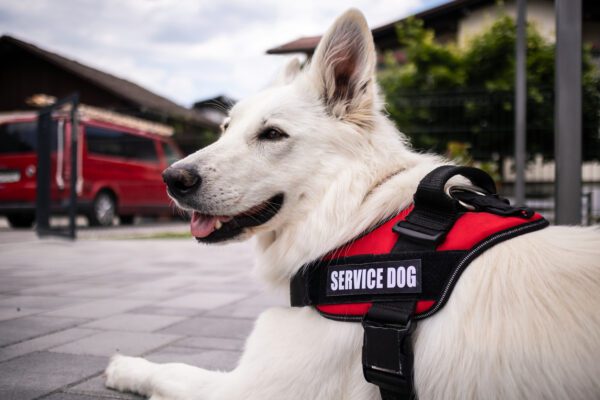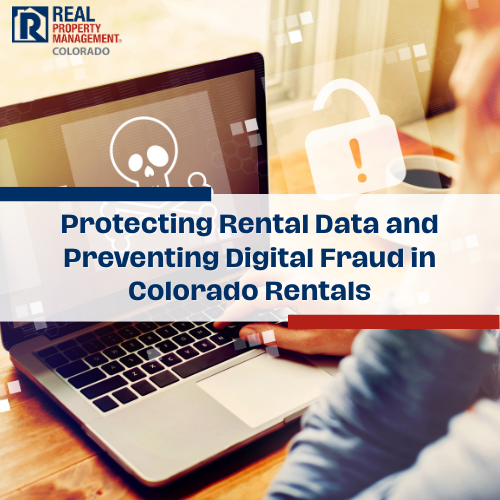Allowing pets in your rental property is more than a feel-good policy. It’s a strategy for boosting your rental’s profitability, increasing retention, and expanding the pool of potential qualified renters each time your home needs new tenants. People in Colorado love pets, and it makes sense that the vast majority of renters come with furry companions. So without further ado, let’s get into the basics of how pet-friendly policies make financial sense and how to do them the smart way in Colorado.

Ways That Allowing Pets in Your Colorado Rental Benefits You
Pets = More Prospective Renters (and faster leases)
Pet ownership nationwide is increasing, with roughly two-thirds of US households having at least one pet. This means that offering pet-friendly housing broadens your audience pool and puts your property in front of a larger audience. Vacancies are costly and frustrating enough without having to worry about the number of views your listing is getting, so why limit it when it comes to allowing pets? Pet-friendly listings typically get more views and lease quicker than those that don’t. Who wouldn’t want a shorter vacancy period? That alone is worth consideration.
Pet Rent and Deposits
One way to mitigate possible damage from pets is to charge a pet deposit or a monthly pet rent. Deposits act as security against potential damage while pet rent helps create predictable income. Just be sure to be aware of any caps or regulations when setting the cost. For example, Colorado limits pet deposits to $300 and $35/mo for pet rent per household, meaning property managers and landlords cannot charge on a per pet basis.
Lower Vacancy = Better Long-Term Cash Flow
According to Zillow, pet-friendly rentals lease 8 days faster than those that don’t. Faster turnover means reduced marketing and vacancy costs. Properties that allow pets typically have a higher renewal rate, too, as residents choose to stay where their pets are welcome and reduce the stress moving has on their furry friends. According to Zillow, 60% of tenants said that the property’s pet-friendly policy played a big factor in their choice to renew. They also say up to 21% longer. Reduced turnover time and lease renewals have a positive impact on cash flow, meaning you enjoy the benefits of steadier income.
Mitigating Damage and Risk
One of the biggest concerns rental property owners have when it comes to pets is damage. From peeing on the carpet to chewing on the siding and baseboards to the liability that comes in the event the pet harms someone else, understanding the risks plays a key part in the decision to allow pets. That being said, there are ways to help mitigate some of that risk. Pet deposits can help reduce the costs of pet damage. Checking references and vet records can help, too.
The next component is drafting a solid pet addendum that deals specifically with the rules, expectations, and how damage is handled for any pet-related challenges. The addendum should specify what pets are permitted, the total deposit collected, and how those funds can be used. Outlining rules, such as picking up after the pet, behavior expectations, and causes for removing the pet help protect you and your property and set clear expectations for the resident. This is where hiring a property manager can help. Property managers like Real Property Management Colorado already have the established documents on hand, including pet addendums drafted by real estate attorneys.

Understanding the Difference Between Pets and Assistance Animals (Service Animals and Emotional Support Animals)
When it comes to establishing your pet policy, it’s important to note the difference between pets and assistance animals (aka Service Animals and Emotional Support Animals). Assistance Animals are considered protected under Federal Fair Housing laws and do not fall under the rules of a no pets policy. It is also illegal to charge additional fees or deposits for Assistance Animals. They’re considered a part of the person, so in essence they’re not technically a pet. There are laws in place that govern how these situations must be addressed, so make sure you understand those regulations. If you’re unsure how to handle these types of scenarios, we recommend contacting a real estate attorney for guidance or hiring a property manager to navigate these situations for you.
Practical, profit-focused tips for Colorado landlords
1. Create a clear pet policy. Create a clear policy and spell out specifics, including the type of pets permitted, size, breed, etc., and the applicable fees and expectations involved with pet approval. Clear policies reduce disputes and speed screening.
2. Use a pet addendum and stronger screening. Have an attorney draft a solid pet addendum to go with your lease agreement. These outline clear expectations, obligations, and how fees and damage will be handled. Consider a refundable damage deposit and (optionally) a small monthly pet rent. Just be mindful of regulatory limitations in Colorado when setting your amounts.
3. Price it right. Market data shows renters will accept modest pet rents or refundable deposits. Price competitively for your submarket and clearly list any additional amounts due for pets. The goal is to capture extra income without discouraging qualified pet owners.
4. Invest a little to avoid a lot. Pet-friendly properties benefit from durable flooring in high-traffic areas, extra paint coats, and regular pest control. These preventive costs are typically smaller than the expense of prolonged vacancy.
5. Consider requiring renter’s insurance (with pet liability). A renter’s policy that includes liability for pet-caused injury or damage reduces owner exposure and encourages responsible tenancy. Talk to your insurance agent about the right coverage options and what types of policies may work best for these types of situations.

A Decision Worth Considering
Setting the right pet policy can help increase occupancy and net income while protecting your property and complying with housing laws. Whether you opt for the more conservative route and set greater restrictions in place or choose a fully pet-inclusive strategy, make sure you understand the pros and cons.
And if you’re unsure where to start, Real Property Management Colorado can help. Our leasing team is fully versed in current trends and can help you tailor your pet policy to help attract quality residents to your home. Plus, we handle all of the back and forth for you so you get the upside without the hassle.





